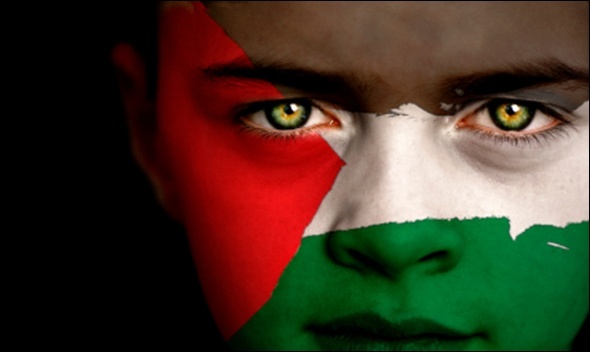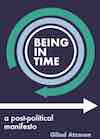Jewish Power and Identity Politics
Clara: You show how Jewish institutions influence US policies, that it all happens in the open and that the Zionist lobbyists boast about their power. So, are Jews, in fact, controlling the world, just as the Nazis claimed they were?
Gilad: This is another multi layered question for which we must first clarify the terminology. Do the ‘Jews’ (the people) control the world? Absolutely not. But a few segments within the Jewish elite are certainly dominant and vastly over-represented within media, finance, culture, academia, politics, political lobbying, Hollywood and so on. I elaborate on this volatile topic in my new book ‘
Being in Time – A Post Political Manifesto
’. The book was partially inspired by ‘The Jewish Century’, the monumental text by Yuri Slezkine that attempted to explain what it was within the Jews that made the 20th into their century: What is it about Jews and their culture that made them dominant in the West? In Being in Time I offer a few of my original ideas. I also attempt to examine some other theories that have been largely rejected, but that I find helpful.
My study suggests that the Jewish elite is extremely sophisticated as well as gifted.
Clara: If they are so gifted, why do you see ‘their dominance in western culture’ as a problem? Can’t we all profit from their extraordinary talents?
Gilad: To start with, we did and we do. That which we criticize is also that which makes our life special. The obsession with the global free market which we hate is entangled with the imaginary sense of freedom we purport to celebrate. The widespread consumerism we hate is part of the illusion that we can posses whatever we want.
But this is a problem as well. The world we live in is not a nice place. It is dystopic and we the people are becoming more nostalgic by the minute. At an earlier point we saw ourselves as free subjects. Now not much is left of that decaying freedom. We are reduced to consumers. The politicians who should represent our needs and desires mostly just facilitate consumption by means of credit. Manufacturing has died on us and the prospect of a better future is remote. I addressed these troublesome issues in ‘Being in Time’. I believe that the identitarian revolution, or rather, the New Left ideology has a lot to do with the above. The Western subject has been indoctrinated to think and speak ‘as a’: as a gay, as a woman, as a black, etc. We learn to identify with our biology (gender, skin colour, sexual orientation, etc.) We learn to see ourselves as an aggregation of biologically oriented tribes. Our people are a construct of multiple Israelite tribes, but the Israelites are better than anyone else at being Israelites, they have been doing it for 3000 years.
Clara: So identity politics are a Jewish construct?
Gilad: Exactly. And here is the most problematic twist. In ‘Being in Time’ I argue that the New Left has fallen into the Nazi trap. Dividing humanity by biology (race, skin colour, gender etc.) requires that we define ourselves and others in biological terms. Instead of uniting under a dynamic universal ethos we are subject to new categories that make human universal harmony impossible.
We live in a totally fragmented society. Instead of fighting together for our common and universal needs, we are divided into identitarian groups and fight each other.
Clara: Biology? Doing what the Nazis did and even defining a ‘race’ when there is none? I see your point: a nice twist indeed.
Although defining oneself in terms of identity seems to be natural: we (nearly) all have experiences of loss and discrimination because of our ‘biological’ identity: as a woman, as a member of an ethnic minority, as somebody with a handicap, because of our sexual orientation, and on.
Gilad: True. It is natural for people to identify with their biology.
This is why half of the Americans voted for Hillary Clinton. This is why ID politics is the only so called Left ideology that has gained in popularity. It also explains some of what what attracted the masses to Nazism. And then, it also explains the logos at the core of Jewish tribalism.
Clara: Gilad, I have a lot of sympathy for anti-discrimination and emancipatory movements. Without them I still would not have the right to vote and my independent career would not have been possible. The homosexual couple in my neighbourhood would have had to pose as cousins and a lot of barrier-free railway stations would be non-existent. And I, personally, love the mix of different ethnic cultures we experience in Germany, in spite of the problems that come with it.
For me as a teacher it has always been important to make sure I support those students who were not born with a silver spoon in their mouths. The motto of our school is ‘Diversity is our strength’ and I stand by that.
When I first encountered criticism of identity politics I didn’t take it seriously because I found the criticism regressive: it came from the kind of people who want to send women back to, as the German saying goes, Kinder, Kueche, Kirche (kids, kitchen and church), forbid abortion, kick out foreigners and view homosexuality as something sick. Though there were increasingly aspects to the ‘multi-culti’ and open-border ideas that made me wonder. I must admit that it was not until the last American presidential race that I realized that within the Democratic Party, identitarian politics had replaced policies that were, in my opinion, ‘genuine Left’ such as improving people’s social and economic situation and anti-imperialism. And I realized that the same had happened to the left in Germany.
So has the Left been captured by identitarians?
Gilad: Yep, I fully understand. Like many others, I used to agree with Left ideology but as I grew older I found the Left to be increasingly delusional, dogmatic and frequently duplicitous. I couldn’t detect any suggestion of dialectical thinking. Even the aspiration towards equality had somehow evaporated. In ‘
The Wandering Who’ I shifted. Instead of asking what the ‘J-word’ represents, I asked what do people mean when they identify themselves as Jews? In ‘Being in Time’ I employed an identical strategy. I asked what is it that people who identify as Leftists adhere to?
The answer was pretty troubling. The New Left shares little or nothing with old Left values. The New Left is tribal, biologically oriented, and it is authoritarian and often proto fascist. The Left was not simply captured by the identitarians, it was hijacked. The New Left is occupied territory and this is another reason why we are all Palestinians.
This is why I argue that by now the Left / Right dichotomy is meaningless and on the verge of futile. Welcome to the post-political condition.
Clara: We are all Palestinians?
Gilad: I believe that it was me who coined the popular adage, ‘by now, we are all Palestinians.’ The meaning of this saying is devastating.
Like the Palestinians we aren’t really allowed to dig into the true meaning of our oppression. The boundaries of pro Palestinian discourse are shaped by Jewish sensitivities. Tragically, this is an adequate description of our Western dissent. Our opposition is shaped by the sensitivities of our oppressors.
Clara: So could we say that emancipation has been replaced by victimization? Are identity politics a powerful movement of people who see the world through the restricted perspective of victims of racist, sexist or some other prejudice or discrimination? Is its philosophy that ‘The world would be a better place, if everybody saw it the way I do’; ‘If xy changed his attitude, I could fulfill my potential, I cannot do that because xy doesn’t let me do it’? Then it is always somebody else who is made responsible. No wonder that white males, who until now were symbols of oppression, also want to be recognized as victims. The steps from this thinking to hate and destructive violent behaviour are not that big:
“We shall have our manhood. We shall have it or the earth will be leveled by our attempts to gain it.” That is how Eldrige Cleaver described the needs of blacks. The way the MeToo
movement brings down male ‘perpetrators’ also seems to be more driven by spite and the wish to humiliate than by the wish to bring wrong-doing to light and peace to women who have been scarred. True ‘souls on ice’!
And because we have to be ‘politically correct’ we are not allowed to criticize victims so as not to hurt their feelings. But this doesn’t heal the harm. You go on feeding this particular ‘child,’ it will never be satisfied and will grow into a big fat monster crying ‘feed me!’ till the end of time.
But how does Jewish victimization and their huge success in the 20th century connect?
Gilad It is amazing for me to read your comment because I examined ID politics and victimhood using a similar approach in ‘Being in Time’. On the one hand we are all broken into biologically oriented tribes. We are defined by our skin, gender, mother’s gene, sexual orientation, yet it is only the biologically identified Jews who have a state, hundreds of atomic bombs, squadrons of F-35s and the question is why? Let me shock you. Because Jewish identity involves self- hatred. Early Zionism was the promise to change the Jews, to relieve them of their victimhood. To make them people like all other people. When identitarians learn how to hate themselves, they may start to move forward, they may even find their path back to the universal.
Clara: Do you mean that self-hatred was the key to Zionism and if Jewishness hadn’t hijacked Zionism, the Jews could have found the path to the universal?
Gilad: Exactly, Zionism was driven by hard core self-loathing. A core principle of Early Zionists was ‘negation of the Galut (Diaspora)’. This form of self-hatred fuelled the fantasy of a new Jewish beginning. Zionism was a form of Jewish empowerment, that tried to replace victimhood.
Clara: ‘… but I laugh, and eat well, and grow strong …’
Gilad: Yes. Instead of blaming the Goyim for anti-Semitic crimes, early Zionists looked into Jewish history and culture and tried to identify what is it in Jewish culture and politics that brings about anti-Semitism. This may explain why Jewish identitarianism has achieved far more than other identitarian groups. Early Zionism, as far as I am concerned, was an astonishing transition in Jewish history. Yet, the fact that it failed is even more significant. It might mean that there is no collective remedy to the Jewish question. If Jews want to rescue themselves, they must break out alone into the night, in the dark, with the hope that they may meet the universal at daybreak.
If they want to burn it, you want to read it …
















No comments:
Post a Comment